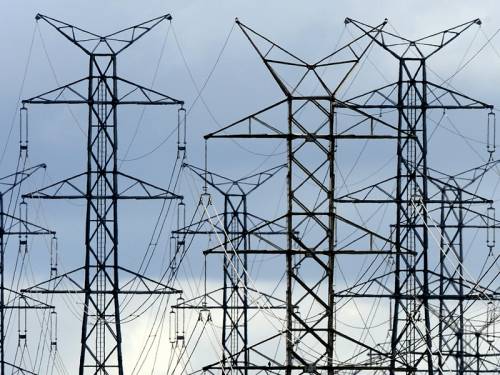While the Ministry of Electricity has struggled to decrease power outages and minimise loads of consumption in the past two years, President Abdel Fattah Al-Sisi was able to bring stability and surplus to the crisis.
The president issued five decisions that successfully decreased the number of power outages that have been occurring over the past two years. The steps included signing new projects, supporting maintenance programmes, providing needed fuel for production plants, completing stopped projects, and issuing laws encouraging investment.
A large number of citizens demanded to hold accountable those who were responsible for the power outages, especially the power outages of August that saw deficits amounting to 10 hours per day, requiring the intervention of the president. Al-Sisi ordered the Minister of Electricity, Mohamed Shaker, to conduct a detailed report on the efficiency of production plants and the networks as well as the maintenance programmes of the units to find the reasons for the crisis.
The president issued these decisions to accelerate the execution of the projects in the Ministry of Electricity’s five-year plan that would put an end to power outages. Moreover, he issued directives aimed at diversifying energy production sources and distributing electricity to all citizens and signed contracts for electricity production projects.
The Ministry of Electricity invested EGP 38.5bn towards increasing the capacities of the network amounting to 682 MW in the past year. This was achieved through operating the plants of Banha and expanding projects in 6th of October City, Ain Sokhna, North Giza, and other locations. Moreover, a new urgent electricity plan was completed this year, increasing capacities to 3,632 MW and costing $2.7bn.
The president demanded the minister of petroleum provide the needs of the production plants, despite the delayed dues owed by the Ministry of Electricity. According to Al-Sisi’s instructions, the Ministry of Electricity contracted with the German company Siemens to establish three power plants that will produce electricity with a capacity of 14,400 MW in El-Borollos and the New Administrative City, wind plants with a capacity of 2,000 MW, a factory for manufacturing turbine grills, and six transmission plants to transfer the produced energy.
The president intervened throughout the technical and financial negotiations until the final contract was finalised. Al-Sisi succeeded in decreasing the cost of establishing the three plants in an unprecedented way, which led to the CEO of Siemens saying that “President Al-Sisi is a skilful and accurate negotiator”.
The president opened nine power plants with a capacity of 5,526 MW in the last month including Assiut power plant, which has a capacity of 1,000 MW, Ataqa plant with a capacity of 640 MW, Al-Mahmoudiya plant with a capacity of 336 MW, West Damietta plant with a capacity of 500 MW, and the 6th of October City plant with a capacity of 600 MW. These projects are part of a five-year plan spanning from 2012 to 2017.
Al-Sisi issued instructions to activate the memoranda of understanding that were signed during the Egypt Economic Development Conference that was held in Sharm El-Sheikh the year before last, which included projects with Benchmark to establish a power plant using the combined-cycle system and with General Electric and Orascom to modify the plants of West Assiut and West Damietta to work with the combined-cycle system.
Other projects in the field of production include the establishment of a plant to pump and store water to produce electricity in Ataqa, coal plants with Acwa Power, Orascom, and IPIC, and creating new and renewable energy projects in cooperation with Acwa Power and a number of other companies.
The Ministry of Electricity contracted with the Chinese State-Grid the installation of lines and cables about 1,210 km length to support the national network and signed contracts with a number of other companies to establish transmission plants and to execute expanding plans in the distribution companies.



